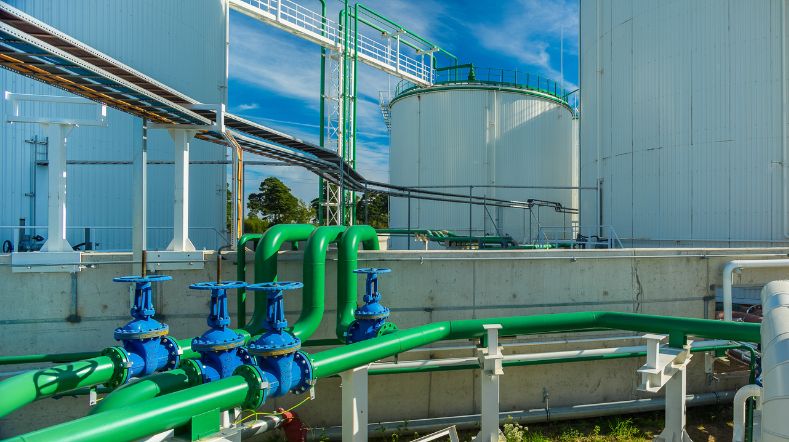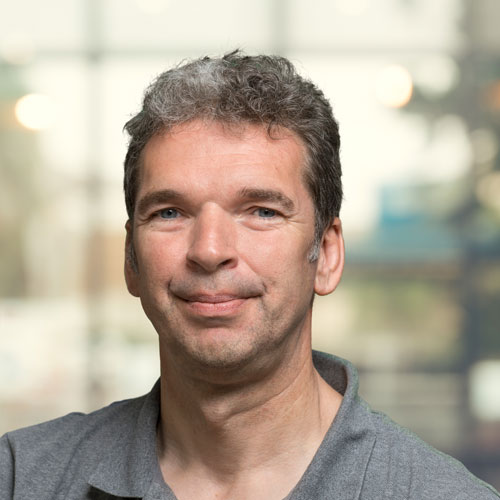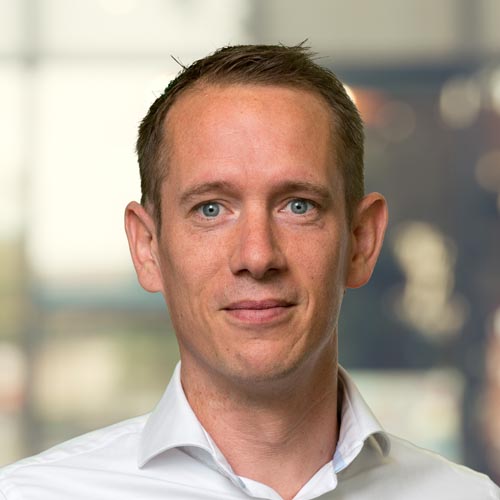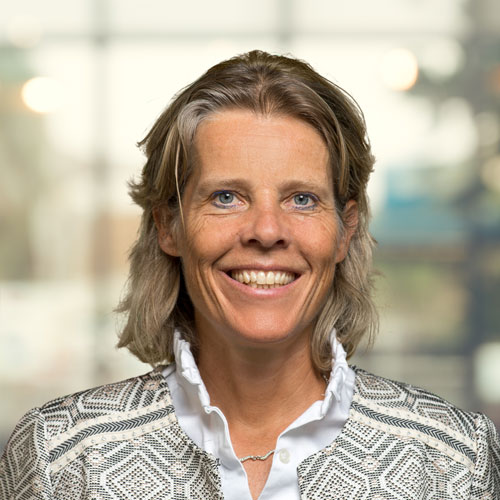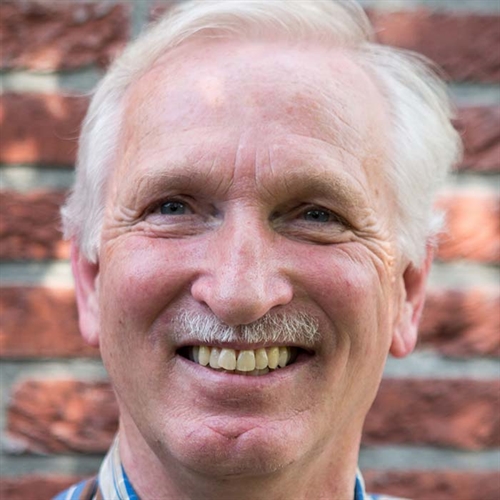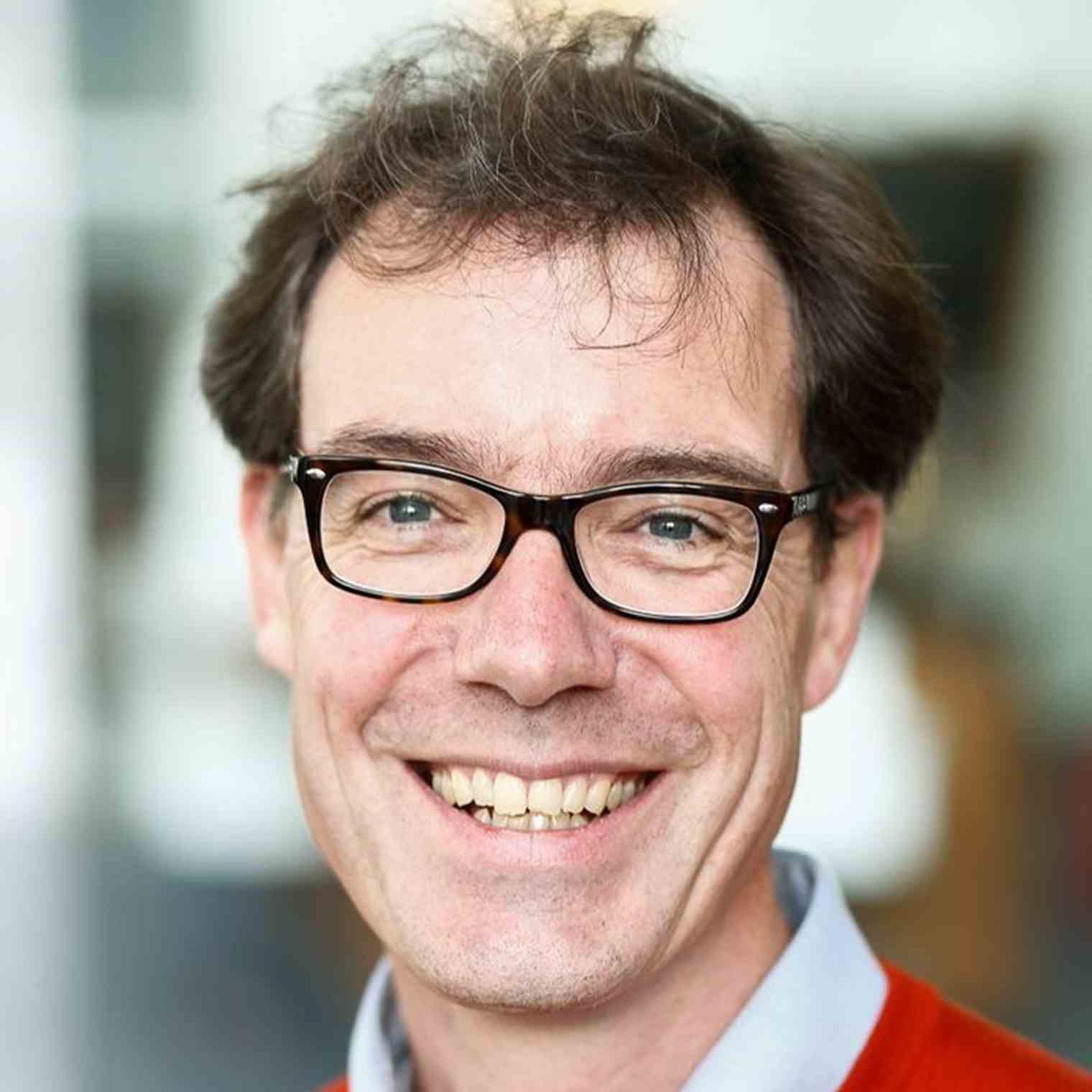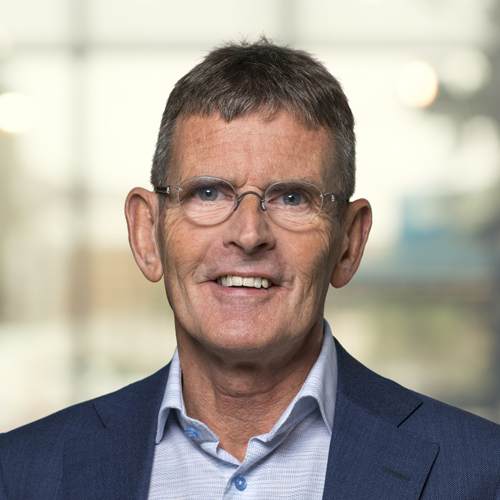
Sustainable aviation fuels from CO2, water and green energy
Status project
present - 2026
In cooperation with
CNRS, SDU, RWTH Aken, Mitsubishi Hitachi Power Systems, RWE, AsahiKasei Europe, FEV, SkyNRG
There is much to be gained in civil aviation when it comes to achieving climate targets. The sector is responsible for two to three per cent of global CO2 emissions. Since flying on electrical or hydrogen power will not be a realistic option for long-haul flights in the coming decades, sustainable aviation fuel (SAF) is currently the only realistic option for making aviation more sustainable.
Over the next four years, TNO is leading a project called Take-Off in which a European consortium of scientific and market players will develop a new technology to make synthetic kerosene more efficient in comparison with existing sustainable fuels. Synthetic kerosene will be produced from CO2, water and green energy. By simplifying the process and reducing the cost of aviation fuel, it will become easier for aviation to switch to sustainable fuels.
Sienna: A unique technology
The proposed method is based on a unique and patented reactor technology recently developed by TNO, called SIENNA. It makes it possible to produce synthetic kerosene from CO2 in just two steps. The usual method involves producing syngas (CO+H2), which is first converted into very long hydrocarbon chains, then cutting them up again and separating the desired kerosene fraction from them.
In this way, too much energy and product is lost. The TNO technology is based on two steps. CO2 is converted in the SIENNA reactor into light olefins (ethylene and propylene) in one go and then very precisely and efficiently into kerosene, making large recycling streams and purification steps redundant.
Cooperation with science and industry
In the project, TNO brings together national and international partners from the entire chain: research institutes, energy companies, soil and fuel suppliers and the organisation CO2 Value Europe that represents companies focusing on CO2 capture and reuse. Universities from Lille, France (CNRS), SDU from Denmark and RWTH Aachen, Germany, together with TNO, provide the scientific knowledge.
Big names from the business world include Mitsubishi Hitachi Power Systems, which is cooperating with energy company RWE, AsahiKasei Europe, FEV and Dutch company SkyNRG, world market leader in the field of sustainable fuel for aviation. Representatives on the advisory board include KLM, Total, ExxonMobile, Amsterdam Port Authority, DMT Environmental Technology, Global Alliance Powerfuels and NISA, the Nordic Initiative for Sustainable Aviation.
Significant cost savings
The parties in the European Take-Off project, which is partly funded by the EU, will be determining the technical and economic performance of the sustainable aviation fuel as well as its positive impact on the environment.
Initial research shows that the envisaged production method requires much less energy, potentially reducing the cost of sustainable fuel for the aviation sector by 30 to 40 per cent. All the innovative steps of the new process will be demonstrated under industrially realistic conditions
Get inspired
Energy infrastructure and transport
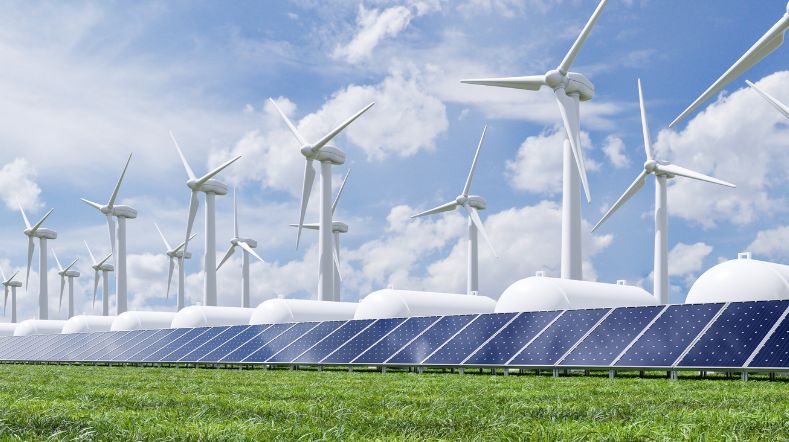

The North Sea as Europe's energy heart requires smart choices


Tomorrow’s hydrogen production and infrastructure: building towards a secure and robust energy system

Scaling-up electrochemical technologies for renewable ethylene production
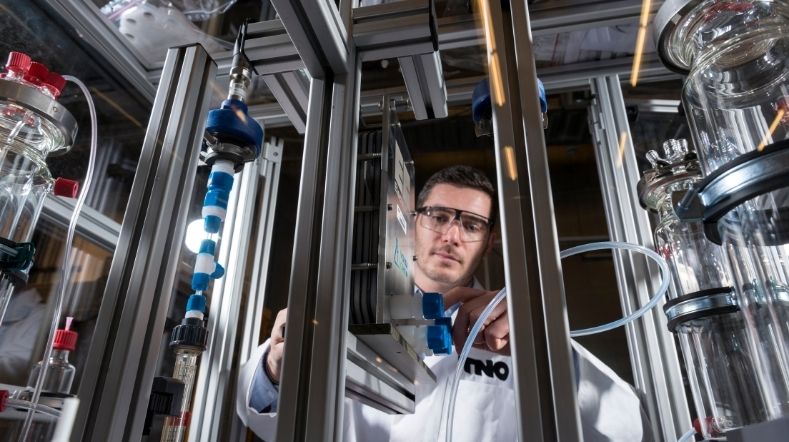

CO2 infrastructure and transport
